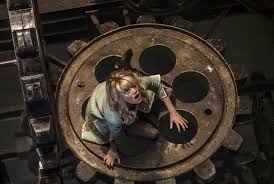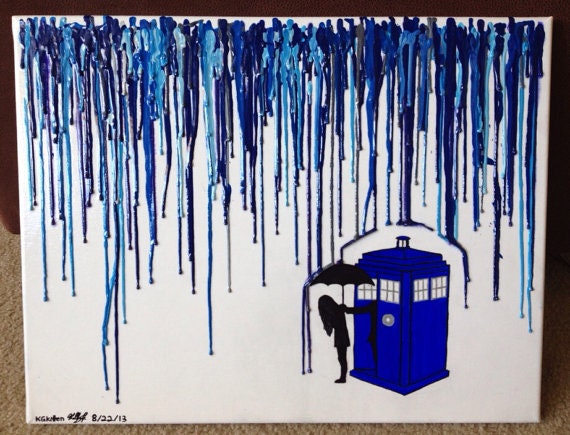There are going to be a lot of reviews on The Amazing Spiderman 2 and they're most likely going to tell you that it is a mess. I think this is a pretty accurate description. This movie suffered from trying to fit too many story lines into one movie- Peter discovering his father's role at Oscorp, the intro and rise of the Goblin, Electro and his origins plus his subsequent fall into insanity, Gwen and Peter's relationship and more. Seriously, no wonder most of the plot lines got frayed!
But I don't want to talk about that because that's not what sparked my interest in this film. What I want to talk about is the treatment of Gwen Stacy. So if you haven't seen this movie and don't want the ending spoiled for you, STOP READING!
SERIOUSLY, SPOILERS AHEAD!
*
*
*
*
*
*
*
*
Alright, if you get it spoiled now, don't say I didn't warn you!
I feel like I need to start this out by saying that I have never read the comics. I mean, maybe when I was little on rainy days but nothing that serious. So I didn't know that Gwen was written to die until I watched a comics review a few weeks ago where they predicted that this movie would end in her death.
Now, in the comment section of a recent
The Mary Sue review, there is a war raging about whether or not Gwen Stacy's death worked or if it was just a cheap ploy to motive Peter's character arc.
The term they are using is "fridging" which refers to "putting women in refrigerators". I wasn't familiar with the term so I looked it up. It's basic definition is the act of killing off a female character to further motivate a male character and boils down to the female only being important because of the role her death plays to the male's point of view.
Basically, Gwen Stacy in the comics. She is only there to be eye candy and when they wanted to give Parker's character have more motivation, they killed her off so he could deal with the guilt of not being able to save her.
I do take issue with this trope. I don't have any issue if writer's are striving to change it.
Now, I totally get both sides of this argument. Yes, the movie made Gwen into this pretty cool chick that was a super smart and savvy girl scientist. She made her own decisions--choosing to end things with Peter when he flaked out, choosing to go to Oxford over Peter and finally choosing to go help Peter defeat Electro. But they took away her choice to be involved when the Goblin came and stole her to get back at Peter. Her involvement with that fight wasn't by choice.
But where I have an issue is that because she doesn't have a choice in that one incident, it somehow negates the fact that she has been her own woman since the beginning. In life, we can't chose how we impact other people, and I get that in fiction, the writer's do, but if Gwen was going to die, isn't it better that Peter, the person who loved her, felt that impact on a personal and professional level? Just like if Peter were the one that ended up dead, she would probably struggle with feelings of remorse. After all, when she was in the tower when they were fighting Electro, she made the decision to pull the switch. What if it had killed Peter and the series went on focusing on how that impacted her? Would we still be having this discussion?
I feel this is especially important because I really believe the writer's strove to make Gwen Stacy more than a plot device in these movies. They wanted her to be more than the girl who died. They wanted her to be the girl that lived, that Peter could have been happy with, that had a mind of her own, that made her own choices even if that meant walking away from the person she loved and even if it meant putting herself in harm's way. So the fact that she did die when she knew she would be in danger, when she knew that being with Peter was dangerous, when she lived in a city attacked by mutant villains, doesn't mean she was fridged. Her death didn't negate the fact that when she was alive, she lived. It just meant that she made her own choices that lead to her death.

I think I also have a big problem with this entire idea, especially in modern fiction, because it seems like the only way around this definition is for a female character to chose to die and while that is beautiful, life doesn't always work that way. A lot of us sure as hell wouldn't chose to die in most circumstances. We'd fight to live and we want our characters to fight too. So yes, maybe Gwen's character could have fought a little more but I still don't see how the outcome would have changed. Sometimes even super powers don't make us fast enough.
I guess I'm taking issue with this entire thing because I write fiction and sometimes, people just have to die, especially when it is right for the story. Heck, even when I create a story, I have a good idea before I even go in to write a single word about the fate of my characters and I know which ones are going to live and which ones need to be sacrificed for the greater good of the storytelling. It doesn't mean those that are going to die are any less than the ones that live unless I'm failing at my job. If I don't make these characters breathe and feel and strive and love before they die, then there is an injustice. That is where the problem lies.

I think Gwen did live. She was unpredictable, strong, smart, funny and forward thinking. She was willing to give up everything to accomplish her goals and she continued to fight against Peter's assessment that his world was too dangerous for her. She reminded him over and over that it was her choice and when he couldn't accept that, she left him.
She lived.
And just because she died doesn't make her life onscreen any less. Just because we saw how it affected Peter doesn't cheapen her. It just makes it real. Because if life isn't sloppy, unpredictable and dangerous and if loss doesn't make you think then it loses its beauty.
Personally, I think Gwen blew the doors off of the refrigerator, stretched her legs and told Peter to go get her a beer. And we'll be thinking about this newer version of her long after we've forgotten which villain belongs to which movie.





























